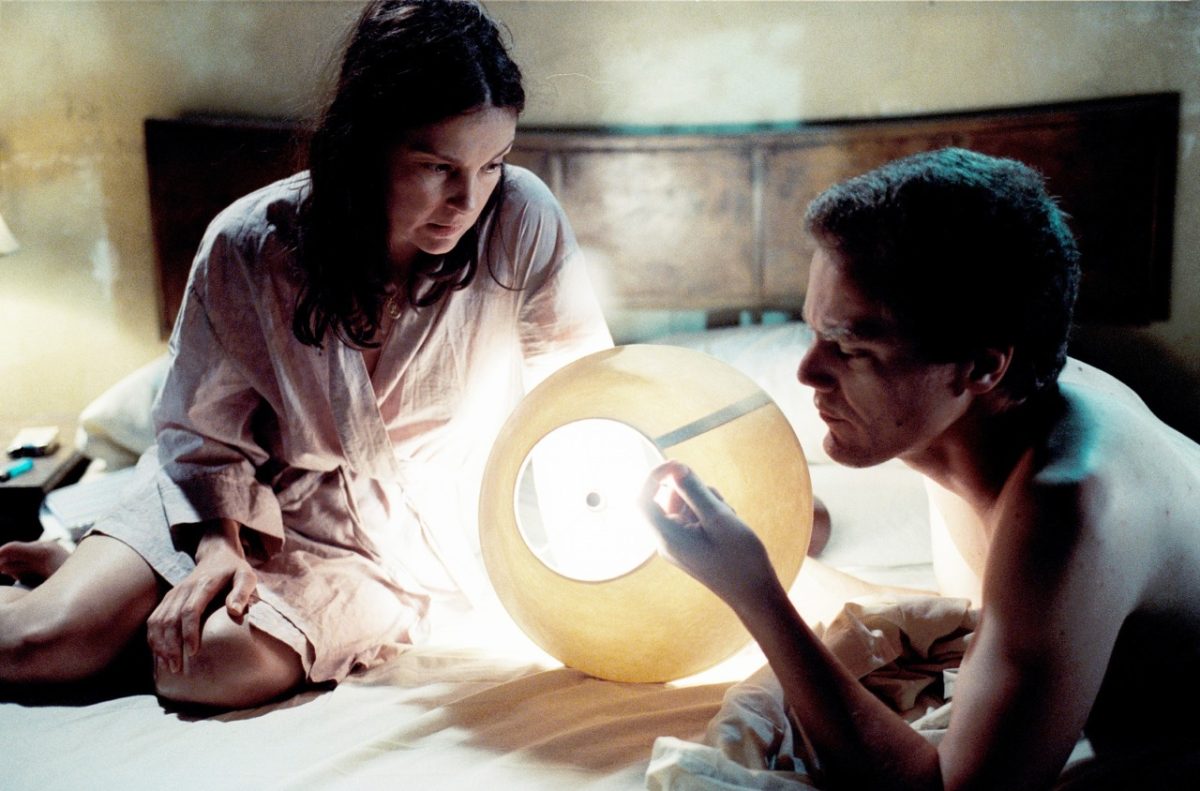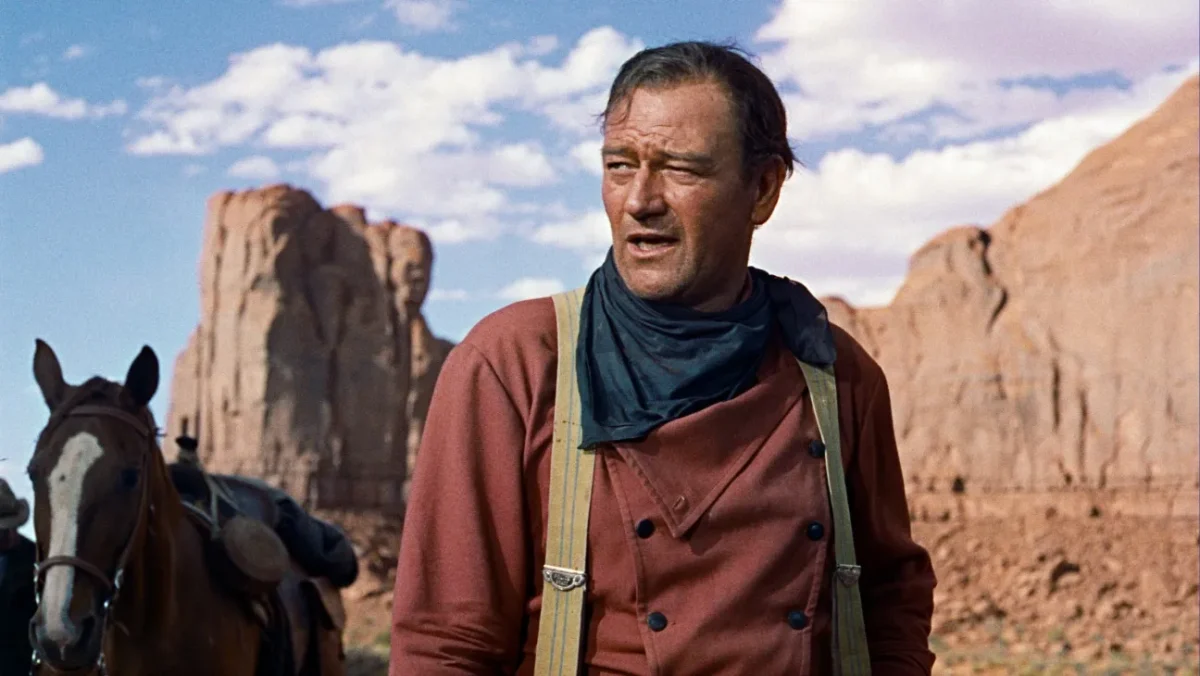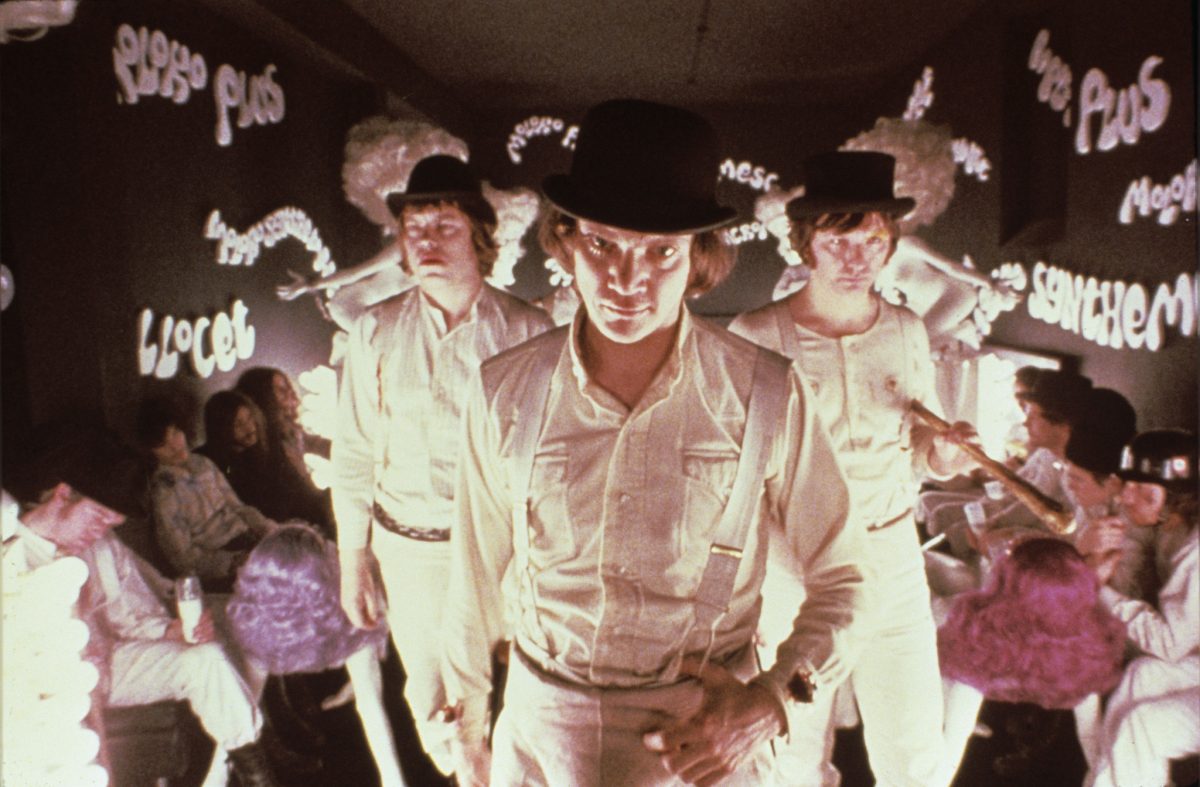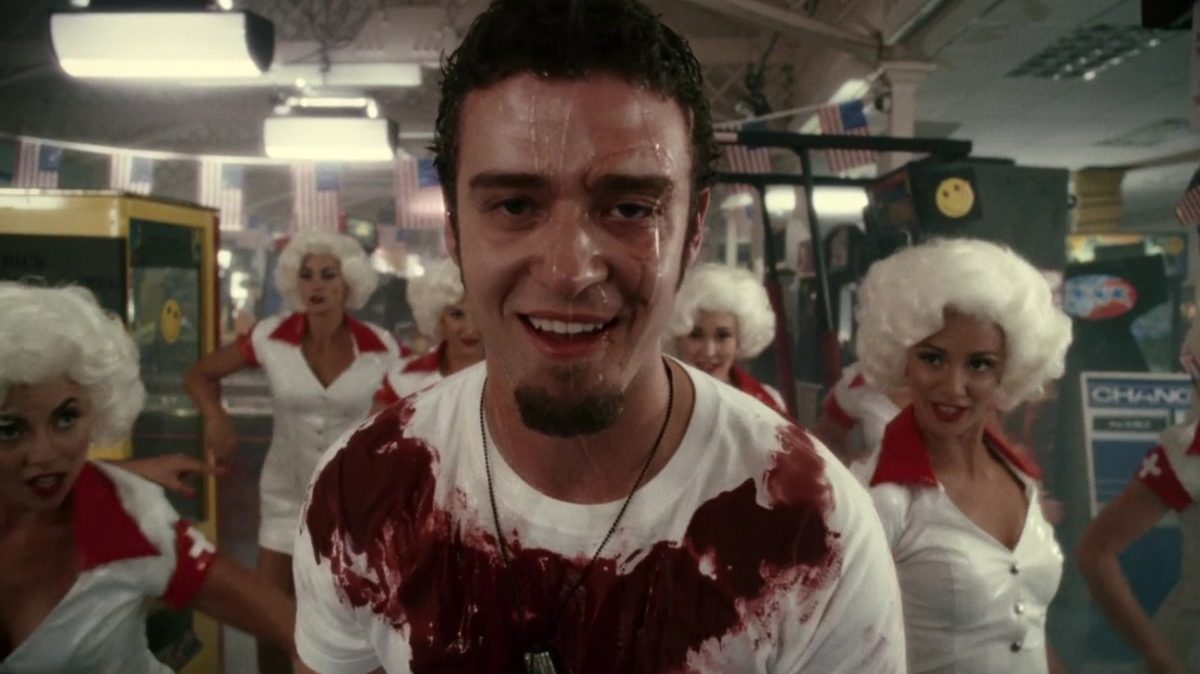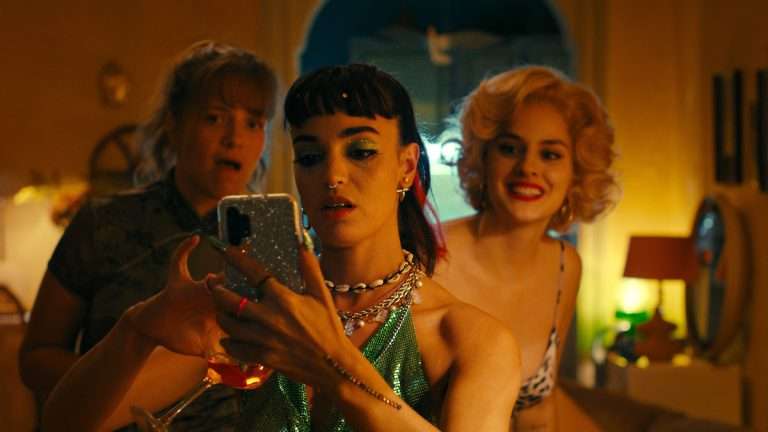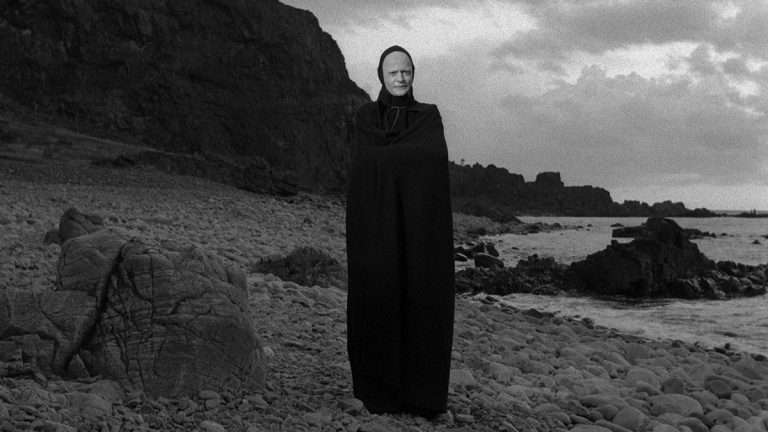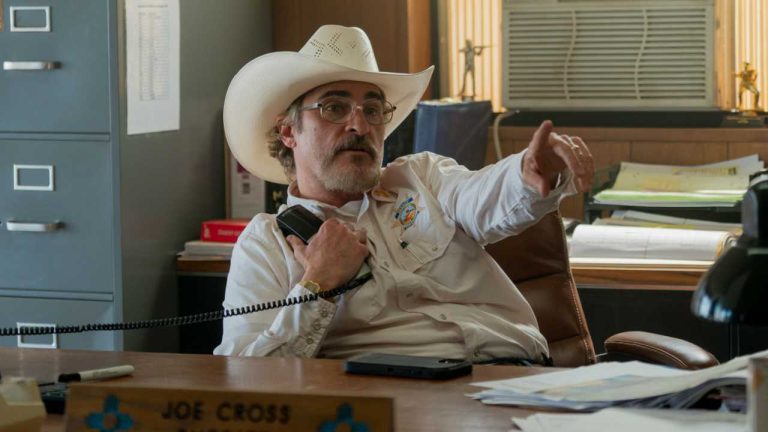It’s unlikely that there will be another film in 2025 that is quite as divisive as “Eddington.” Ari Aster’s latest psychological drama is bound to inspire all forms of criticism for both its filmmaking aesthetics and narrative choices. 2020 was perhaps too close a time for audiences to make reasonable conclusions about their experiences during the COVID-19 pandemic, but as always, Aster pushes viewers out of their comfort zone with an inflammatory, disturbing account of the divisions that formed.
Although “Eddington” uses COVID-19 as its inciting incident, it’s interested in far more than just a debate about the efficacy of wearing a mask. Between racial protests, police authority, political corruption, corporate overreach, and the mainstream appeal of fringe conspiracy theories, Aster tackles nearly every topic that is likely to incite blowback.
To describe “Eddington” using traditional genre descriptions is not an easy task, as the film is deeply inspired by westerns, contains components of pure horror, has the pacing of a classical drama, and frequently breaks into bouts of absurdist satire and slapstick comedy. It’s certainly a film that would have only been possible today, but that doesn’t mean that Aster hasn’t drawn from historical achievements in divisive filmmaking.
It’s often that bold directors are keen to attack recent controversies, even if they know it’s unlikely to be met with immediate praise. Those who appreciated the unusual, profound, and occasionally moving techniques that Aster employed during the making of “Eddington” may find things to enjoy within these six films.
1. Civil War (2024)
Although “Civil War” is not technically based on recent events, it presents an alternate reality that is not that far removed from the last few years. Set within an alternate history in which the United States has been ravaged by the first civil conflict since the assassination of Abraham Lincoln, Alex Garland tells a story about journalists who aim to cover the unprecedented events from as objective a perspective as they can manage.
Like “Eddington,” “Civil War” raises many hot-button topics with its vague allusions to militarization, political radicalization, and xenophobic tendencies. It may not be possible to watch “Civil War” without feeling somewhat attacked by the representation of a certain group, which is an indication that Garland has his finger on the pulse.
Garland works in a classical tradition of using instantly recognizable imagery to examine fundamental questions about human nature. If Francis Ford Coppola used the Vietnam War to examine Joseph Campbell’s “Heart of Darkness” with “Apocalypse Now,” then Garland takes notice of America’s stratification to question whether it’s entirely possible (or ethically sound) to transcribe history without being a part of it.
It’s often been debated whether a film can truly be “anti-war” if it dramatizes combat in any way, and judging by the extreme reactions to “Civil War,” Garland may have answered his own question. However, there’s a mastery of the craft within “Civil War” that mirrors that of “Eddington,” as even those who don’t agree with their conclusions can’t help but admire the extraordinary staging, production, and performances.
Also Read: 8 Movies to Watch If You Liked ‘Civil War’ (2024)
2. Bug (2006)
It’s somewhat ironic that Aster’s first film, “Hereditary,” has a lot in common with William Friedkin’s horror masterpiece “The Exorcist,” because “Eddington” feels closely tied to Friedkin’s divisive 2006 adaptation of the Tracy Letts play “Bug.” Even if conspiracy theorists gained newfound authority during the period of time in which “Eddington” takes place, it wasn’t a phenomenon that occurred with no precedent, as these fringe groups have always existed.
“Bug” is a journey into the mind of one such “true believer,” played by Michael Shannon in one of the boldest and most unhinged performances of his career. After he gains the trust of a woman played by Ashley Judd, “Bug” continues to pulverize its audience by exploring disgusting and uncomfortable nightmarish scenarios.
Like “Eddington,” “Bug” shines a light on a segment of society that is easy to ignore, and is able to depict outsiders without completely disregarding the reasoning behind their beliefs. Most filmmakers would not dare to depict these stories without a good deal of moral finger-waving, but Friedkin has rarely bowed down to public opinion, and isn’t afraid of the bad faith interpretations that “Bug” could have theoretically inspired.
“Bug” is a true achievement in economic storytelling, as Friedkin occupies the screen with so much striking imagery and kinetic movement that it is easy to forget that the material was originally intended to be witnessed on the stage. As with “Eddington,” “Bug” has a somewhat malevolent sense of humor, as it’s hard not to react with both laughter and trepidation at the sheer absurdity of it all.
3. The Searchers (1956)
Perhaps the most unusual influence on “Eddington” is that of John Ford’s westerns. Aster includes many direct allusions to his 1956 masterpiece “The Searchers.” It’s a film that has an outsized influence that spans beyond the confines of the western genre, as it was cited as a primary inspiration for both George Lucas’ design for “Star Wars” and the style of Steven Spielberg’s efforts on “Raiders of the Lost Ark.” “The Searchers” is a deceptive film that is often mistaken for a traditional adventure because of what an inherently talented dramatist Ford is.
However, “The Searchers” is actually a deeply haunting condemnation of generational hatred, as John Wayne’s Major Ethan Edwards is perhaps the most identifiable origin for the anti-hero archetype. Without this performance, it’s unlikely that there would have ever been the Narrator in “Fight Club,” Patrick Bateman in “American Psycho,” Will Munny in “Unforgiven,” or Howard Ratner in “Uncut Gems.”
“Eddington” explores the twisted psychology of Sheriff Joe Cross (Joaquin Phoenix), a respected, loyal authority, whose growing feud with Mayor Garcia (Pedro Pascal) inspires him to start an independent political campaign, all whilst entertaining radical conspiracy theorists and police extremists.
“The Searchers” is a similar complication of the hero archetype, as it’s Edwards’ desire to save his niece (Natalie Wood) that drives him to grow increasingly hateful in his treatment of indigenous people. Despite being heralded as an all-time masterpiece, “The Searchers” is often not given credit for being one of the most important statements in American cinema.
4. Beau is Afraid (2023)
While Aster proved his merit in horror with his first two films, “Hereditary” and “Midsommar,” he proved his merits as a satirist with his strange adventure odyssey “Beau is Afraid.” Phoenix’s performance in “Eddington” may be refreshingly loathsome, but in “Beau is Afraid,” he’s tasked with portraying an utterly pathetic man-child whose complete lack of independent thought leads him into various baffling, dangerous, and frightening scenarios. Aster turns his biting satirical eyes to everything from protest movements to religious fundamentalism.
But at its core, “Beau is Afraid” is a giant practical joke in which the titular character is the punchline. If the loaded precision with which Aster tackles relevant issues in “Eddington” is likely to get under the skin of audiences who aren’t well-versed in transgressive cinema, then “Beau is Afraid” is a blatant satire at the expense of those who attempt to find meaning in the madness.
While there are direct allusions to existing media and philosophical concepts that are apparent in “Beau is Afraid,” Aster was also afforded the opportunity to let his imagination run wild, as it’s a film that often rebukes standard aspects of structure. Aster is a surprisingly tidy filmmaker when it comes to excess, as despite running three hours in length, “Beau is Afraid” rarely allows for a moment of reflection as it rambles into its next absurd set piece. Even beyond Aster’s established appreciators, it’s a blast to watch that appeals equally to fans of both “Dumb and Dumber” and “Barry Lyndon.”
Also Read: All 4 Ari Aster Movies (Including Eddington), Ranked
5. A Clockwork Orange (1971)
“Eddington” is a “ripped from the headlines” recap of the ramifications of all-too-recent history, but one of Stanley Kubrick’s greatest gifts was his ability to offer warnings about what would soon become imminent. Although Aster has borrowed aspects of Kubrick’s style throughout his career, “Eddington” has the most in common with the 1971 dystopian satire “A Clockwork Orange,” which took inspiration from the controversial novel of the same name by Anthony Burgess.
“Eddington” is bound to ruffle feathers of overtly sensitive critics, but Kubrick was in a different category when it came to audience blowback. “A Clockwork Orange” was banned in England for many years, disparaged by Burgess in the media, and received an “X” rating in America by the MPAA, which made it virtually impossible to market.
“Eddington” forces its viewers to follow the perspective of a protagonist who is radicalized in real time, but “A Clockwork Orange” presents its lead character after he is beyond the capacity for redemption. Malcolm McDowell’s role as Alex is terrifying, but Kubrick shows an interest in showing society’s inability to curb his violent tendencies, and how the extreme efforts of a totalitarian regime only exacerbate the disenfranchisement of an irritated youth population.
Like Aster, Kubrick is also a bit of a humorist, specifically when it comes to his unlikely needle drops; the now iconic use of “Singin’ in the Rain” in “A Clockwork Orange” is the clearest bearer to the equally brilliant appearance by Katy Perry’s “Firework” in the soundtrack for “Eddington.”
Similar Content: 10 Great American Movies That Explore Nihilism
6. Southland Tales (2007)
“Eddington” deserves a tremendous amount of credit for its willingness to tackle events that have only slightly faded from memory, but there isn’t a film that has become as oddly relevant over time as “Southland Tales.” After “Donnie Darko” proved to be a cult favorite, Richard Kelly was given the opportunity to earn a more sizable budget to pursue his other interests in science fiction.
In the aftermath of 9/11, Kelly looked at the state of a divided nation and constructed a brilliant satire about a corporate-owned Republican Party, the prominence of popular culture figures that direct public opinion, the emergence of a surveillance state, and the use of conspicuous government research activities that constitute torture. While baffling at the time of its release, as Kelly’s film was thoroughly rejected by an audience at the 2006 Cannes Film Festival, “Southland Tales” was so accurate in its predictions about America that it is downright eerie.
There’s a beauty to the messiness of “Southland Tales,” as Kelly was only allowed to release a trimmed version of the film theatrically at the end of 2007, and spent over a decade putting together the pieces for a revised cut. While it now exists in a more complete (if no less baffling) state, “Southland Tales” has also been expanded with a prequel graphic novel series that offers some answers to the film’s confusing worldbuilding. Time has proven to be more than kind to the boldness of Kelly’s vision. “Southland Tales” deserves to be recognized as one of the best films of the 21st century.


